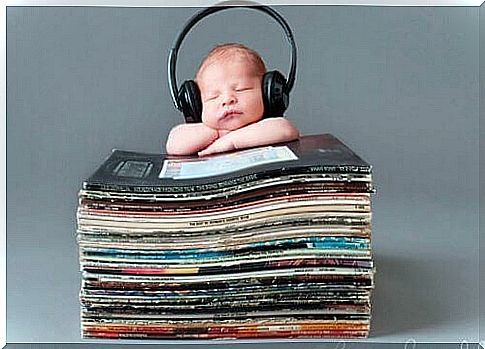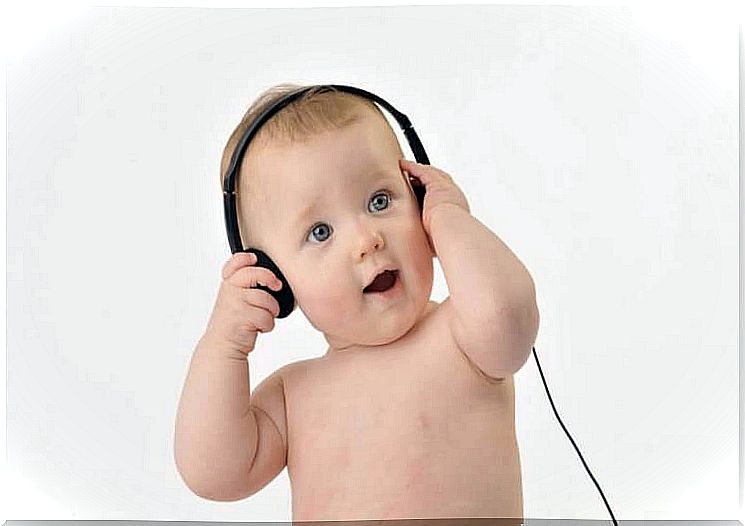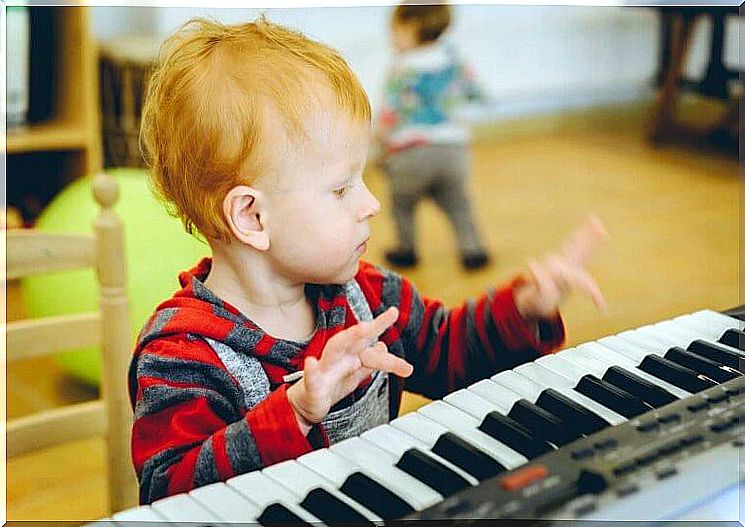How Music Helps Children Talk

Everyone knows the benefits of music for children and that rhythm favors their intellectual capacity. If you rock your little one in time to music, you may be wondering how this experience is beneficial to his brain and how it affects his development. But does music help children speak?
Music can be important to the baby, and its importance goes beyond the fact that the rhythm entertains him. In fact, music helps children speak .
A study confirms that music helps children speak
A new study by University of Washington researchers shows that playing with children to the rhythm of music helps brain development. It helps 9-month-old babies to improve speech and better understand the sounds they need to pronounce, thereby greatly improving their language skills. This is a very cutting-edge study in this sense.
The study is the first to be carried out with such young children and to suggest that music causes children to learn a rhythmic pattern (typical of music). This improves the ability to understand and predict the rhythmic patterns of the spoken language. This is a great discovery, because in addition to developing the brain, music also helps children to speak.

The complex world of sounds
Babies experience a complex world when they begin to discover sounds, lights and sensations… All of these stimuli vary constantly and they may feel disoriented and sometimes even confused. The child’s task is to recognize the patterns that govern them and predict what will happen next.
Perception of patterns is an important learning in cognitive ability and also improves the early ability to improve future learning. All these components are essential for the cognitive development of the newborn and so easy that it is enough to expose the child to music with rhythmic patterns. Babies will enjoy the music and at the same time their brains will be working at full speed.
Language has rhythmic patterns
As with music, language also has strong rhythmic patterns. When people pronounce syllables, this helps the listener define a concrete speech sound and understand what is being said expecting a definite speech pattern. This is the ability to identify differences in speech sounds, which will undoubtedly help children learn to speak more easily.
The researchers in this study created a random experiment that was evaluated to see if music is indeed a good tool for improving speech ability in children thanks to musical rhythm. The idea was to verify how the rhythms of the music positively influenced the 9-month-old children who participated in the study.
What the study consisted of
Over the course of a month, 39 children attended 12 play sessions with music, which lasted 15 minutes, in the laboratory. They were always accompanied by their parents. In groups of two or three children, the little ones sat with their parents, who guided them through the activities the researchers had previously explained to the adults.

There were 20 children who were assigned to the music group. In these sessions there was recorded music, for the children to play while a member of the team guided the children and their parents to strike instruments lightly following the rhythm and beats of the music that the researchers had chosen to lead. this study.
All the songs were in ternary meter (as in waltz music). This was chosen by the researchers because it was relatively difficult for children to learn. The 19 remaining children in the control group attended play sessions where there was no music. These children played with toy cars, constructions and other objects that required coordinated movements but without music.
Yes, music helps children speak
A week after the play sessions with or without music, the families returned to the lab to see the brain responses in the children, which were measured. The researchers used magnetoencephalography to see the exact location and duration of the babies’ brain activity; so as to be able to verify more precisely how the experiment had affected the children.
While the children’s brain activity was measured, they were played with a series of musical excerpts and speech sounds. The rhythm was interrupted from time to time and the children’s brains showed a particular response. This indicates that they actually detected the interruption of the rhythm of both the music and the words. Investigators focused on the auditory cortex and the prefrontal cortex.
The children in the music group had stronger brain responses to both the music and speech rhythm interruption than the children who had music during the experiment. This suggests that participating in play sessions with music helps children speak by improving their ability to detect sound patterns.









